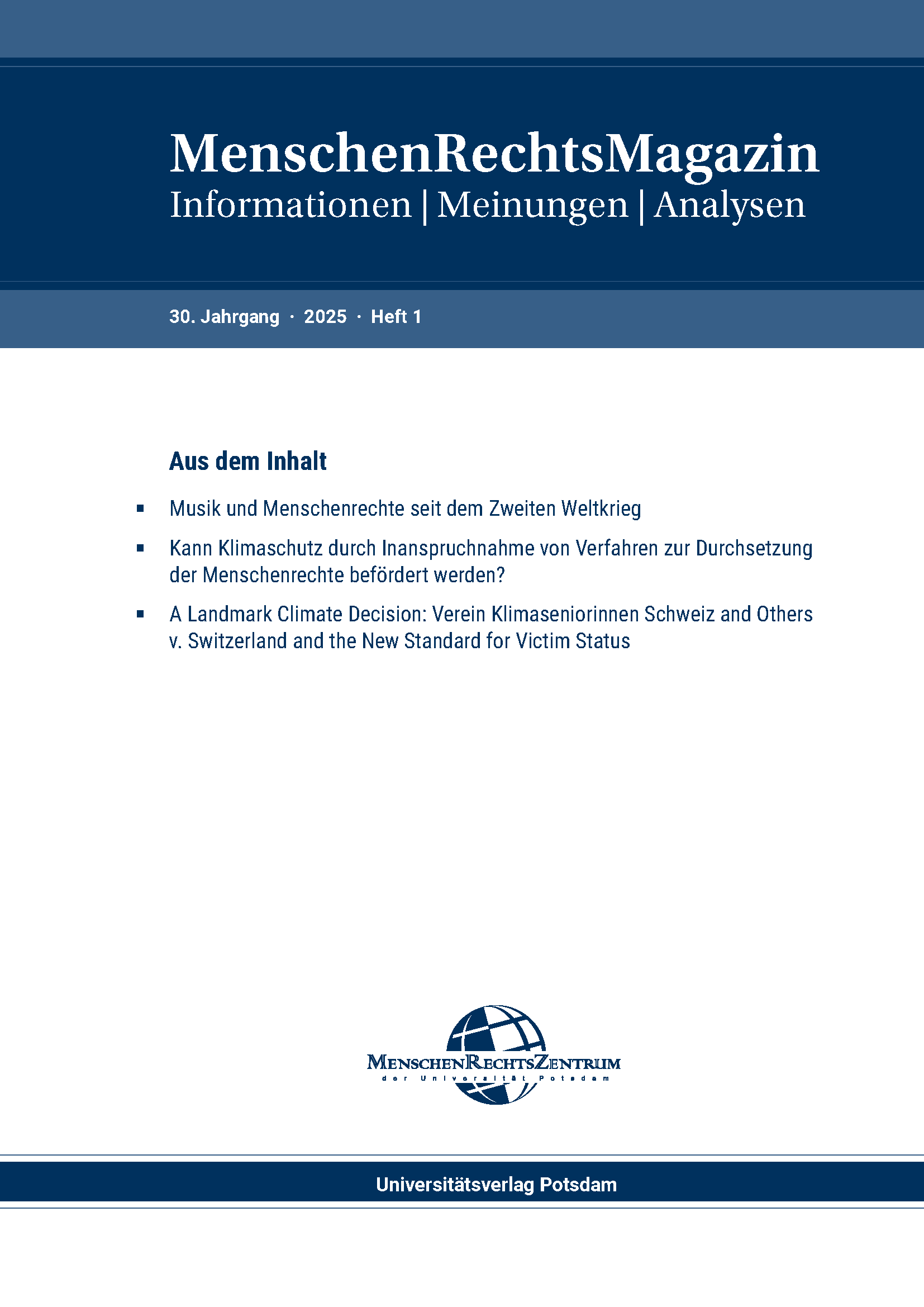Music and Human Rights Since World War II
DOI:
https://doi.org/10.60935/mrm2025.30.1.17Keywords:
Music, Aesthetics, History, Sound Studies, History of Emotions, Sensory HistoryAbstract
How can the articulation of human rights politics be explored through sound, musical practices, and reception? This article addresses the intersection of music and human rights on a global level since World War II. The two authors observe that historians have already examined human rights from a variety of perspectives—such as law, society, and cultural politics—yet the expression of human rights issues in sound aesthetics has so far received little scholarly attention. Musicologists and sound researchers, on the other hand, have extensively analyzed the symbolic and affective use of music and sound on the part of social movements, cultural institutions, liberal governments, authoritarian regimes, and individual activists. Yet, the theme of human rights has only been explicitly addressed in a few publications. Against this background, the authors argue and demonstrate that an interdisciplinary analysis combining theories and methods from history, music, and sound studies can open up new pathways to understanding the global history of human rights.
Downloads
Published
Issue
Section
License
Copyright (c) 2025 Steffen Just, Jessica Gienow-Hecht

This work is licensed under a Creative Commons Attribution 4.0 International License.


